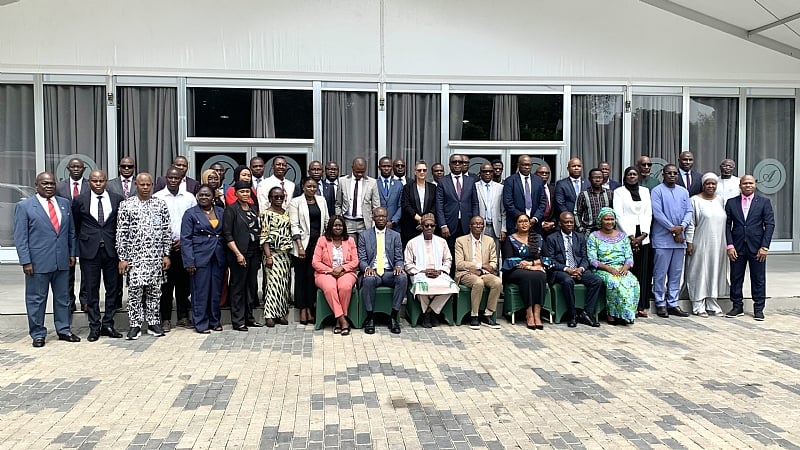The Economic Community of West African States (ECOWAS) convened a four-day meeting in Accra, Ghana, commencing on September 23rd, 2024, with the crucial objective of reviewing and validating a draft regulation for the ECOWAS Community Levy Operation Manual. This gathering brought together experts from various member states, representing key stakeholders in the ECOWAS region, to collaborate and finalize the manual for subsequent approval by the Council of Ministers. The primary aim of this initiative is to enhance the efficacy and transparency of the ECOWAS Community Levy, a vital financial instrument supporting the organization’s operations and regional programs.
The ECOWAS Community Levy is a 0.5% tax levied on the Cost, Insurance, and Freight (CIF) value of goods imported into member states from non-ECOWAS countries. This levy serves as a significant revenue stream for ECOWAS, contributing between 70% and 90% of its budget. The funds generated are essential for financing the organization’s diverse activities and crucial programs aimed at promoting regional integration, development, and stability. Recognizing the importance of this levy, Dr. Robert Moikowa, speaking on behalf of the Chairman of the ECOWAS Administration and Finance Committee, underscored the manual’s critical role in sustaining the levy and improving compliance among member states.
Dr. Moikowa highlighted the critical link between the Community Levy and ECOWAS’s financial stability, emphasizing the need for efficient revenue collection to support the organization’s mandate. He expressed optimism about the meeting’s potential to generate innovative ideas for expanding the levy’s reach and exploring alternative revenue sources. This proactive approach acknowledges the increasing economic challenges faced by member states and the need to adapt to the evolving financial landscape. He urged participants to explore strategies for bolstering the levy’s revenues and ensuring its long-term sustainability. This call for action reflects the importance of adapting to the dynamic economic environment and exploring innovative financing mechanisms to support ECOWAS’s mandate effectively.
The ECOWAS Community Levy, established through a protocol adopted in 1996 and implemented in 2003, has undergone revisions over time to enhance its effectiveness. A supplementary act endorsed by ECOWAS Heads of State in 2021 further refined the levy’s framework. However, despite these efforts, compliance with the levy regulations remains a challenge. The discrepancies in compliance underscore the need for clearer guidelines and procedures to ensure consistent implementation across member states.
Molokwu A. Azikiwe, Director of Budget and Treasury at the ECOWAS Commission, emphasized the significance of the new manual in providing clear, step-by-step procedures for levy deposits and postings. He highlighted the existing variations in compliance with the protocol, leading to ambiguities and misunderstandings. The new manual aims to address these inconsistencies by providing a comprehensive guide for all stakeholders involved in the levy process. This standardized approach is expected to promote transparency and accountability in the collection and management of levy funds. By clarifying the operational procedures, the manual aims to mitigate discrepancies in interpretation and application of the levy regulations, ultimately enhancing compliance and revenue collection.
Professor Nazifi Abdullahi Darma, ECOWAS Commissioner for Internal Services, stressed the importance of addressing the operational challenges associated with the Community Levy. He emphasized the need to review and update the levy’s operational framework to align with contemporary realities. This recognition of evolving economic and political dynamics within the region underscores ECOWAS’s commitment to adapting its financial mechanisms to ensure their long-term effectiveness. The development of the ECOWAS Community Levy Operation Manual marks a significant step towards strengthening the organization’s financial foundation and ensuring the sustainable funding of its regional integration and development initiatives. By streamlining procedures, promoting transparency, and adapting to dynamic circumstances, ECOWAS aims to optimize resource mobilization and effectively fulfill its mandate of fostering regional peace, stability, and prosperity.














